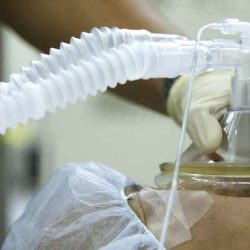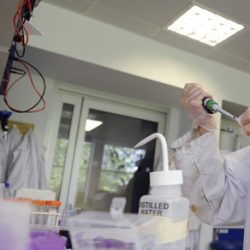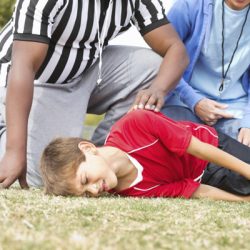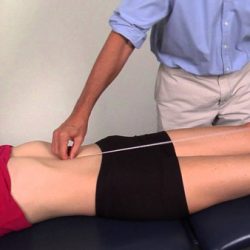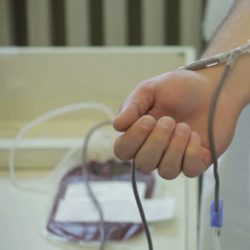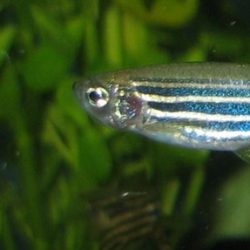People with epilepsy experience uncontrolled seizures that can impair quality of life and cause stigma that leads to social isolation. The neurological condition can limit some activities most people take for granted, such as sustaining work or operating a vehicle. Researchers at the University of Pennsylvania and funded by the National Institute of Biomedical Imaging and … [Read more...]
Alternative Health News

Metabolites role in understanding disease: University of Alabama Study
Over-reliance on genetic-centered approaches in predicting, diagnosing and treating disease will lead to few future scientific breakthroughs, cautioned a University of Alabama researcher who co-authored an article in an early online issue of Genetics that advocates for a greater emphasis on the body's metabolites in understanding illnesses. "To augment the value of genetic … [Read more...]
Vitamin D supplements may benefit children with kidney disease: A Study
Maintaining normal vitamin D levels helps preserve kidney function in children with chronic kidney disease (CKD), according to a study appearing in an upcoming issue of the Journal of the American Society of Nephrology (JASN). The findings indicate that vitamin D -- which is an easily accessible, safe, and inexpensive nutritional supplement -- may be a useful addition to … [Read more...]
Dark chocolate and red wine the food of love and health: Loyola University Study
If you want to keep your true love's heart beating strong, Susan Ofria, clinical nutrition manager at Gottlieb Memorial Hospital, said the real food of love is dark chocolate and red wine. In moderation, red wine and dark chocolate are good health choices not just on Valentine's Day, but for any occasion. "You are not even choosing between the lesser of two evils, red wine … [Read more...]
Increasing vitamin D supplementation in elderly women: A Swiss Study
Osteoporosis is one of the chief reasons why the elderly often suffer broken bones from relatively minor injuries. Postmenopausal women in particular experience a relatively rapid loss in bone mass due to a reduced concentration of oestrogen, which is responsible for strong bone growth during youth. Maintaining bone mass requires physical exercise and vitamin D, which is mainly … [Read more...]
Exercise can help Women Who Want to Delay Preventive Mastectomy: University of Pennsylvania Study
Regular physical activity could play a role in helping women at high-risk of breast cancer delay the need for drastic preventive measures such as prophylactic mastectomy, according to new research led by the Perelman School of Medicine at the University of Pennsylvania. Results of the WISER Sister study help clarify the emerging connection between exercise and breast cancer … [Read more...]
Schoolers benefit academically from extracurricular activities: New York University Study
Activities outside the classroom -- especially community engagement and sports -- may help low-income, urban youth academically as they transition into middle school, according to a new study by NYU's Steinhardt School of Culture, Education, and Human Development. The findings, published online in the American Journal of Community Psychology, suggest that participating in … [Read more...]
Molecular switch generates calorie-burning brown fat: University of California Study
A research team led by UC San Francisco scientists has identified a molecular switch capable of converting unhealthy white fat into healthy, energy-burning brown fat in mice. Drugs that flip this switch rapidly reduced obesity and diabetes risk factors in mice fed a high fat diet. The results suggest that drugs capable of targeting similar molecular pathways in human fat … [Read more...]
Lifestyle change could reduce risk of Alzheimer’s: A German Study
Changes in lifestyle could reduce the risk of developing Alzheimer's disease. That was the conclusion of a study conducted by researchers of Heidelberg University's Network Aging Research (NAR), who examined the data from two independent epidemiological studies. Carriers of the ApoE4 genetic risk factor for Alzheimer's may be able to reduce their increased risk of cognitive … [Read more...]
Some patients may require less anesthesia: A Study
The amount of anesthetic required for general anesthesia during surgery varies widely from patient to patient and some may be able to receive a lower dose than typically administered, suggests a study being presented at the ANESTHESIOLOGY® 2015 annual meeting. "Providing general anesthesia is a delicate balance, ensuring the patient receives enough, but not more than … [Read more...]
Snake venom helps hydrogels stop the bleeding: Rice University Study
A nanofiber hydrogel infused with snake venom may be the best material to stop bleeding quickly, according to Rice University scientists. The hydrogel called SB50 incorporates batroxobin, a venom produced by two species of South American pit viper. It can be injected as a liquid and quickly turns into a gel that conforms to the site of a wound, keeping it closed, and … [Read more...]
ACL injuries increase among school-aged children and adolescents: A Study
A new study confirms what doctors working with young athletes already suspected: the number anterior cruciate ligament (ACL) tears among youths, particularly high school students, has risen during the past 20 years. The study, to be presented at the 2015 American Academy of Pediatrics (AAP) National Conference & Exhibition in Washington, DC, reviewed an insurance … [Read more...]
Treatments for leg length discrepancies: A Study
When balancing treatment options for a child with a significant difference in leg length, doctors typically advise families about the risks and benefits of surgeries to either shorten or elongate one of the limbs. New research suggests they may also want to consider how the child's ultimate height will affect his or her income as an adult. In a study to be presented at the … [Read more...]
Teenager in United States are more risk takers: A Columbia University Study
Teenagers are known for taking unnecessary risks, from reckless driving to smoking marijuana, but some seek out risky experiences more than others. A new study of sensation-seeking behavior led by a researcher at Columbia University's Mailman School of Public Health with colleagues from Columbia University's Department of Psychiatry and the University of Puerto Rico School of … [Read more...]
Brain multitasking Revealed: New York University Study
Researchers at NYU Langone Medical Center say they have added to evidence that a shell-shaped region in the center of the mammalian brain, known as the thalamic reticular nucleus or TRN, is likely responsible for the ability to routinely and seamlessly multitask. The process, they suggest, is done by individual TRN neurons that act like a "switchboard," continuously … [Read more...]
Clues about ‘betel nut’ addiction: University of Florida Study
For hundreds of millions of people around the world, chewing betel nut produces a cheap, quick high but also raises the risk of addiction and oral cancer. Now, new findings by a University of Florida Health researcher reveal how the nut's psychoactive chemical works in the brain and suggest that an addiction treatment may already exist. The betel nut, a seed of the areca … [Read more...]
A drug engineered from bananas fight many deadly viruses: University of Michigan Study
A banana a day may not keep the doctor away, but a substance originally found in bananas and carefully edited by scientists could someday fight off a wide range of viruses, new research suggests. And the process used to create the virus-fighting form may help scientists develop even more drugs, by harnessing the "sugar code" that our cells use to communicate. That code gets … [Read more...]
Heavier patients require less blood transfusions in hip, knee replacement surgery: A Study
Blood transfusion rates in hip and knee replacement surgery were dramatically lower in overweight or obese patients than patients of normal weight, according to a study at Henry Ford Hospital in Detroit. Researchers also found no correlation between the heavier patients and post-surgical complications such as blood clots and heart attacks. The findings from a study of … [Read more...]
Sedentary lifestyles leads to risk of developing kidney disease: American Society of Nephrology Study
Being sedentary for too long during the day may be a risk factor for chronic kidney disease, according to a study that will be presented at ASN Kidney Week 2015 November 3¬-8 at the San Diego Convention Center in San Diego, CA. Sedentary behavior (engaging in activities in the seated or lying position that barely raise the energy expenditure above resting level) is commonly … [Read more...]
Researchers identify gene that increases risk of sudden death in patients with mild epilepsy: A Canadian Study
Researchers in the Adult Genetic Epilepsy Program of the Krembil Neuroscience Centre have discovered a gene mutation that increases the risk of sudden unexpected death in epilepsy (SUDEP) in patients with mild forms of the disease. The study, entitled "Two definite sudden unexpected deaths in epilepsy in a family with a DEPDC5 mutation" and published in the journal … [Read more...]
Will you have male or female offspring: A Swiss Study
According to popular belief, whether you have a baby girl or boy is purely a matter of chance. And yet, a study published several years ago shows that mothers in stressful jobs, for instance, give birth to more girls than boys. The correlation between such shifts in the offspring sex ratio and the mother's overall state is something that evolutionary biologists are familiar … [Read more...]
Study finds existence of protein in blood can be early predictor of kidney disease: A Study
Mayo Clinic researchers in Rochester, Minnesota, collaborated with the University of Mississippi Medical Center on a recent study, "Troponin T as a Predictor of End-Stage Renal Disease and All-Cause Death in African-American and Whites From Hypertensive Families." For the first time, this study identified the presence of a specific protein in the blood used to look for heart … [Read more...]
Better communication about sex is just as effective as ‘female Viagra’: Medical University of Vienna Study
A hormone treatment with oxytocin improves the sexual experience of women suffering from sexual dysfunction. This is the finding of a study conducted at MedUni Vienna, which has now been published in the journal Fertility and Sterility. However, a control group that only received a placebo via a nasal spray, showed similar improvements. Sexual dysfunction in women is therefore … [Read more...]
Heavy TV watching leads to unhealthy perceptions of fast food health risks: American University Study
Television programs and commercials displaying fast food consumption that target young people are on the rise. While experts agree that television can entertain and inform, most TV programs and advertisements portray no negative consequences of fast food consumption. New research found that the rise of positive fast food imagery on TV strongly biases the views of children and … [Read more...]
Most teen mood swings decline with age: A Study
Adolescence is typically regarded as a period of heightened emotionality. Although the teen years are an important time for youth to learn to regulate their emotions, little research has looked at the development of teens' emotional stability. Now a new longitudinal study has found that adolescents' mood swings decline gradually as they get older, which should reassure parents … [Read more...]
School absenteeism and early behavioral problems: A German Study
At least 5% of children and adolescents in Germany are in need of psychiatric treatment. Diagnostic investigation for behavioral problems is indicated in another 10% to 18%. Two articles in Deutsches Ärzteblatt International explore the questions of what interventions help children who are avoiding school, and whether providing support for social and emotional skills can … [Read more...]
Zebrafish study sheds new light on human heart defects: University of Otago New Zealand Study
Researchers working with zebrafish at New Zealand's University of Otago have published a study providing new insights into the causes of the congenital heart defects associated with a rare developmental disorder. The disorder, Cornelia de Lange Syndrome (CdLS), is estimated to occur in up to 1 in 10,000 births worldwide. CdLS causes a range of developmental anomalies, both … [Read more...]
Daytime sleep boost learning: A Study
A new study suggests that receiving rewards as you learn can help cement new facts and skills in your memory, particularly when combined with a daytime nap. The findings from the University of Geneva, to be published in the journal eLife, reveal that memories associated with a reward are preferentially reinforced by sleep. Even a short nap after a period of learning is … [Read more...]
Scientists one step closer to understanding longevity: American Chemical Society Study
Why some people live much longer than others is an enduring mystery. Now, based on a study of a worm, scientists are getting one step closer to understanding longevity. They report in ACS' Journal of Proteome Research that the metabolic profiles of the worms could accurately predict how long they would live and that middle age could be a key turning point. Other than … [Read more...]
Hormone linked to calorie-burning brown fat: A Study
Researchers at Joslin Diabetes Center have discovered that a hormone long associated with weight loss and improved glucose metabolism is linked to activation of calorie-burning brown fat. This finding could have implications for production of new medications for type 2 diabetes and obesity. The results are published in the January issue of The Journal of Clinical … [Read more...]
- « Previous Page
- 1
- …
- 8
- 9
- 10
- 11
- 12
- …
- 25
- Next Page »








